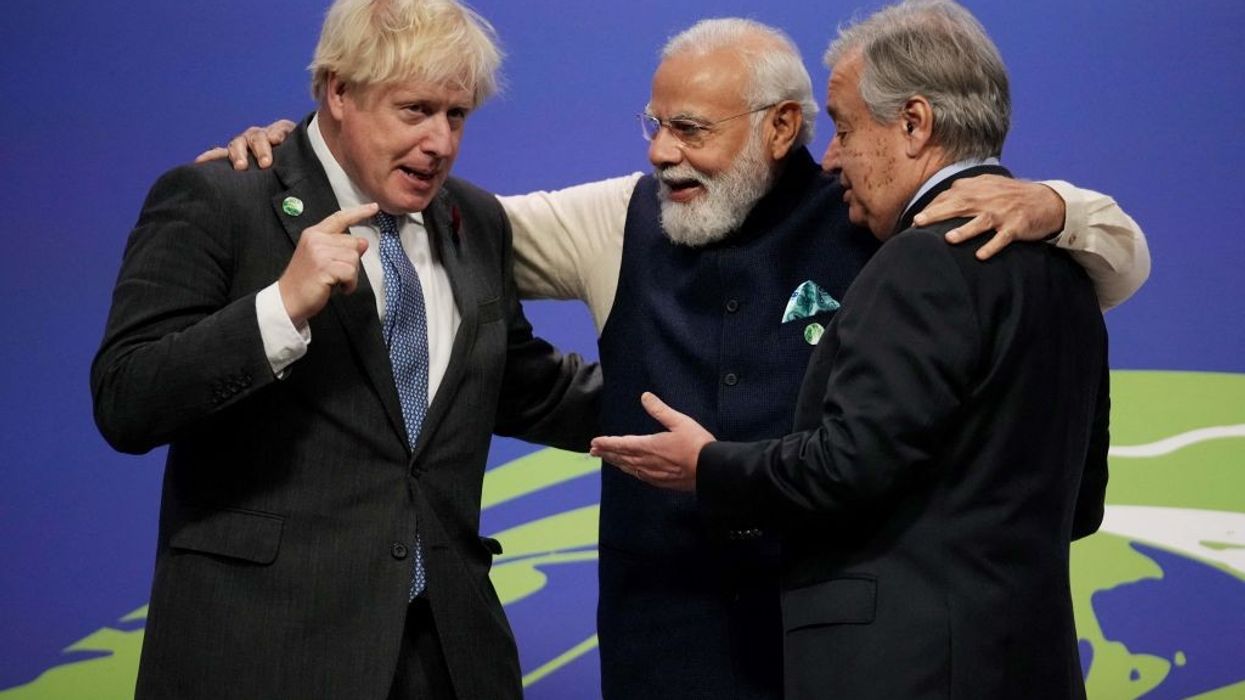ENVIRONMENT experts have said that India's pledge at COP 26 to achieve net zero carbon emissions by 2070 is "real climate action".
They added that the country is doing more than most countries, including China, to reduce emissions.
According to experts, India has put the ball in the court of developed nations to fulfil the promised $1 trillion of climate finance.
Sunita Narain, director general of centre for science and environment has said that India has laid out its roadmap, and targets of non-fossil fuel, renewable energy and reduction of carbon intensity. These are all pathways to get one billion tonnes carbon emission reduction by 2030, she said.
“India has laid out its roadmap. This is more than organisation for economic co-operation and development (OECD) and certainly what China has done. India's enhanced nationally determined contribution (NDC) is a challenge to the world to step up,” she tweeted.
“We will reduce 1 billion tonnes by 2030; per capita will be 2.31 tonnes/as against the US at 9.4 tonnes/per capita and China 9 tonnes/per capita. No question that this is running the talk."
She, however, said to limit the 1.5-degree temperature rise, the world will have to go net-zero by 2050.
“For the world to go net-zero by 2050, China should go by 2040 and OECD countries by 2030. This is why net-zero is inequitable and makes combatting climate change unambitious and ineffective. We deserve better,” Narain said.
Arunabha Ghosh, founder of council on energy, environment, and water, said, “Now, India demands $1 trillion of climate finance as soon as possible and will monitor not just climate action but deliver climate finance. Most importantly, India has called, once again, for a change in lifestyles. If we cannot fix how we live, we cannot fix the planet on which we live."
Aarti Khosla, director, climate trends, said, “By announcing a commitment for achieving net-zero targets by 2070, India has responded positively to the global call and it was the best climate action in Glasgow today.”
“The commitment of 500GW of renewable energy by 2030, which is more than twice the installed capacity of coal currently, should set the stage for a quick transformation of the energy sector, the kind of which hasn't been witnessed so far,” she said.
Ajay Mathur, director-general, international solar alliance, said reducing one billion tonnes of emissions by 2030 and expanding non-fossil capacity to 500 GW are enormous and transformative steps.
“Reducing 1 billion tonnes of emissions by 2030 and expanding non-fossil capacity to 500 GW are enormous and transformative steps. Fifty per cent of electricity generation from renewable energy sources speaks India's leadership and commitment to climate action."
Chandra Bhushan, CEO, iForest, has said that India's steps will go a long way in solving the climate crisis.
According to Vaibhav Chaturvedi, fellow, council on energy, environment and water, said that by announcing the net-zero emissions target, India also accorded a red carpet to foreign and domestic investors who want to invest in research and development, manufacturing, and deployment of green technologies in India.
Ravi Singh, secretary-general and CEO, WWF India termed India's five key commitments made the COP26 as a “bold stand” which is a pathway towards low carbon development.
In 2015, India had committed to achieve 40 per cent of all installed power generation capacity to be from non-fossil energy sources by 2030. According to the new NDC, 50 per cent of electricity generation will come from renewable energy sources by 2030. The target of achieving 450 GW non-fossil energy capacity has been increased to 500 GW by then.





